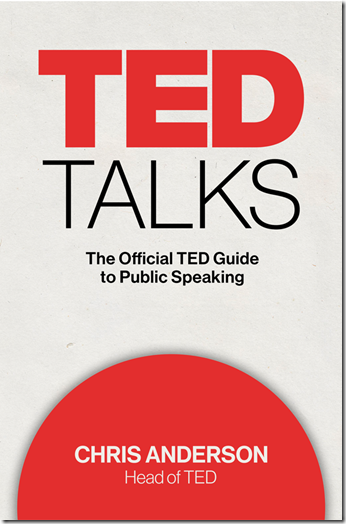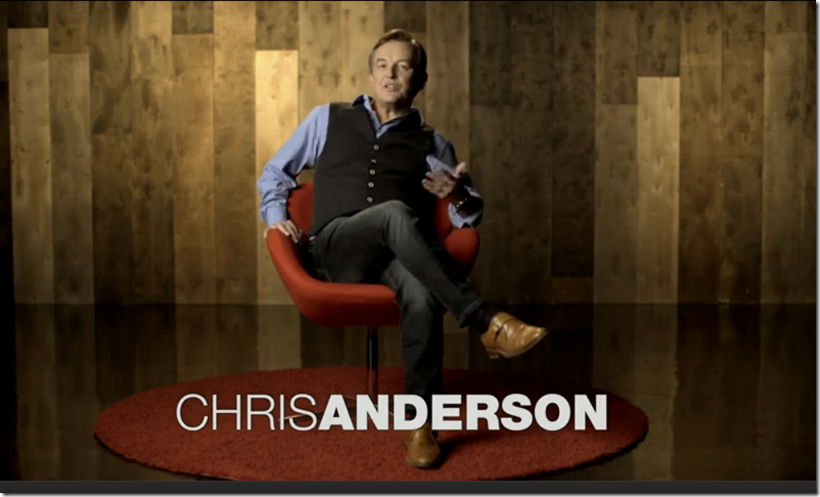Three Public Speaking Tips From The Curator Of TED Talks
I often compare TED Talks to Lay’s Potato Chips: no one can watch just one. More often than not, the talks, dedicated to spreading great ideas, are engaging, surprising, and even challenging.
So when Chris Anderson, the curator of the popular TED series, was interviewed on NPR’s Diane Rehm Show last week, I listened. Intently.
Anderson has a must-read book coming out next month called TED Talks: The Official TED Guide To Public Speaking. During the interview, he offered a few of the nuggets he’s picked up along the way.
1. Create A Through Line
Anderson reinforces what so many researchers and successful presenters know about what he calls “your number one task as a speaker”—transferring your idea to your audience.
But the way you do that, the only way, is to construct it out of concepts and ideas that are already in your audience’s minds. And that’s a very tricky undertaking to do, and the only way you can really do it is to cut back on the range of what you want to talk about, focus on one powerful idea. That is your through line. Every part of your talk should connect to that in some way. And, you know, the mistake that so many people make is just to cram in lots and lots of stuff. But when something is overstuffed, it’s under-explained.
2. Remember That Great Speakers Are Often Made, Not Born
Not all TED speakers are naturally good presenters. They need help. Anderson says that some ideas are so important to share that it’s worth investing the time and effort to coach them.
Good ideas matter too much and we should make huge efforts to help people to make their work accessible and compelling. And so we’ve stepped up, really, the amount of coaching, if you like, and assistance to speakers to frame their idea in a way that really, is really interesting… We’ve discovered that almost everyone actually can be persuaded to and coached to do a good talk.
Bottom line, don’t let a fear of speaking or a feeling that you’re not great at it stop you from succeeding. If you have a powerful message or an important idea, it’s worth studying better ways to communicate it or seeking coaching to share it.

3. Do You
Anderson says it doesn’t matter if you memorize your presentation or use notes, rather that you decide early on which approach is right for you. There are risks and advantages to both.
When it comes to memorizing your speech, Anderson says the problem is not with sounding too robotic; it’s being under-rehearsed.
There’s a phase that people go through, which is his robotic sounding talk, which is horrible. But the answer is just to keep going, to know the talk that much better so that it’s second nature to you.
When it comes to using notes, Anderson says the greatest risk is a tendency to ramble and exceed your time limit.
It’s really important for a big talk that you rehearse it several times and you make sure that you really know the transitions and that you know that you can say all that you want to say in the time available.
The entire interview is worth a listen. It includes everything from tips on dealing with your fear of brain freeze to behind-the-scenes tidbits from popular talks such as Monica Lewinsky’s on cyber-bullying.
For more, Anderson’s recent video about what makes a great TED speaker is below.
Anderson’s book will be released on May 3 and is available for pre-order on Amazon.



